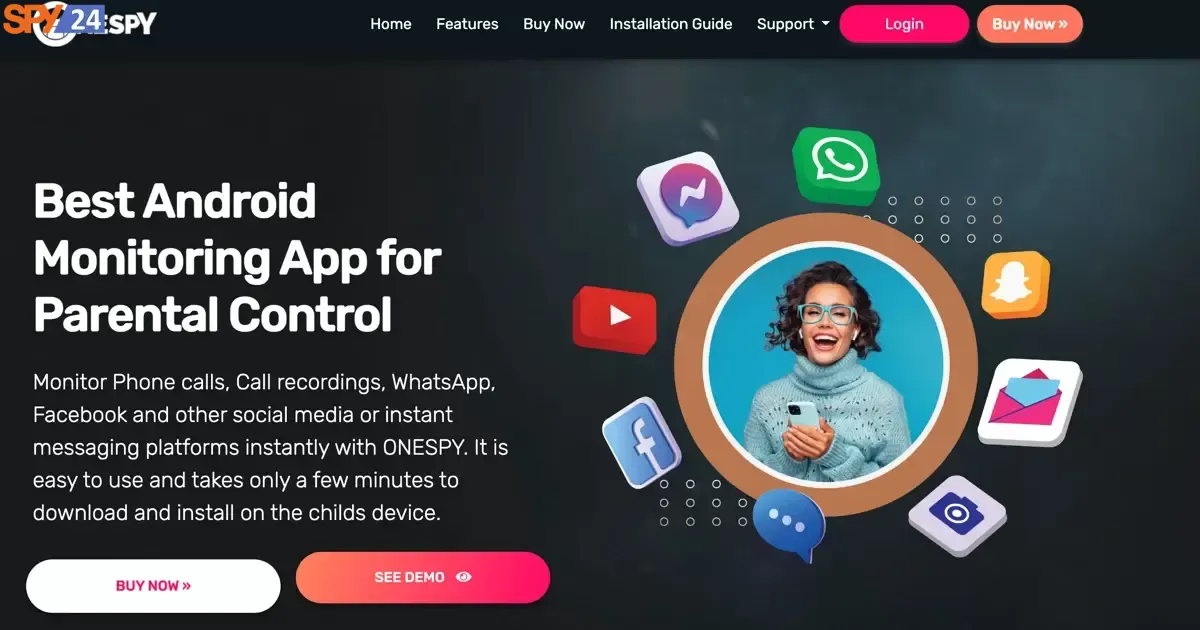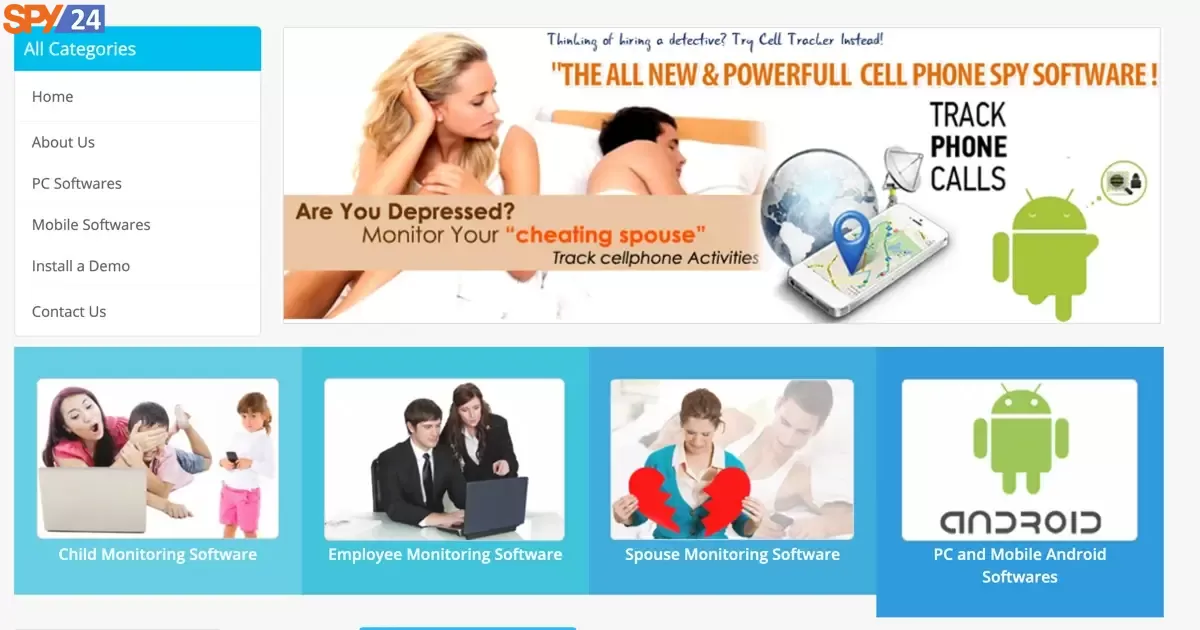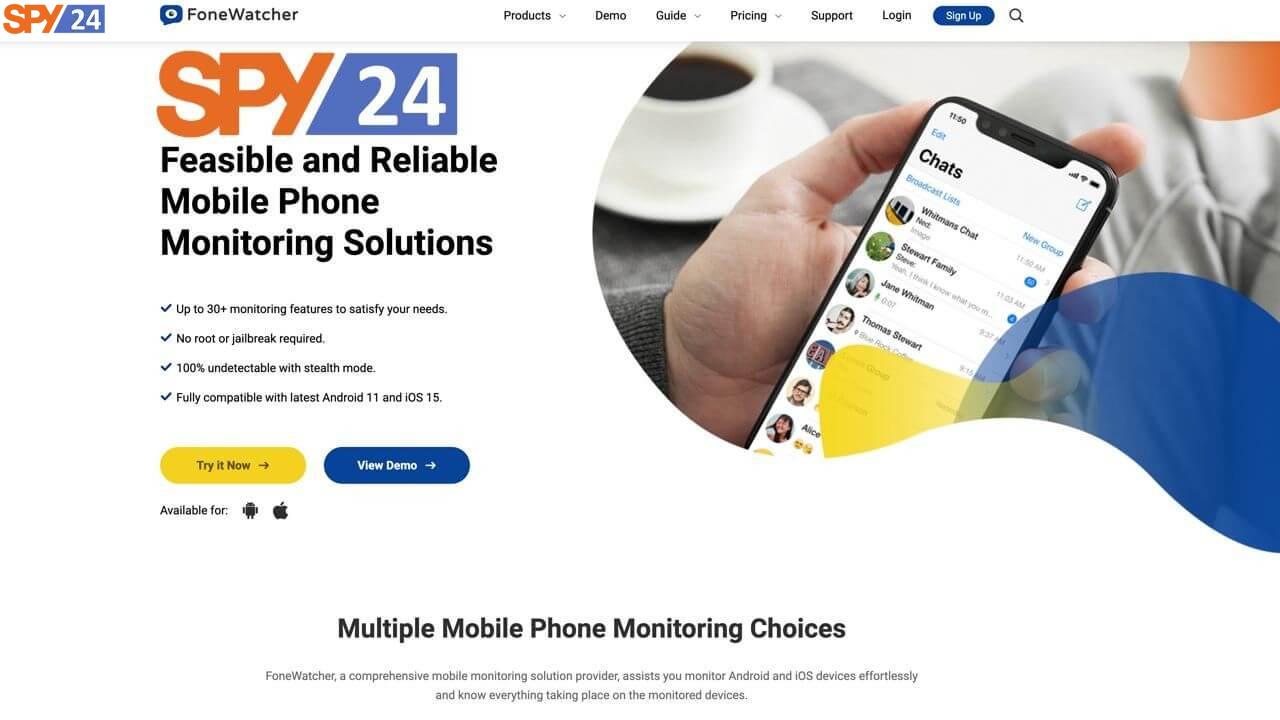How to Safeguard the Internet for Children for 2024
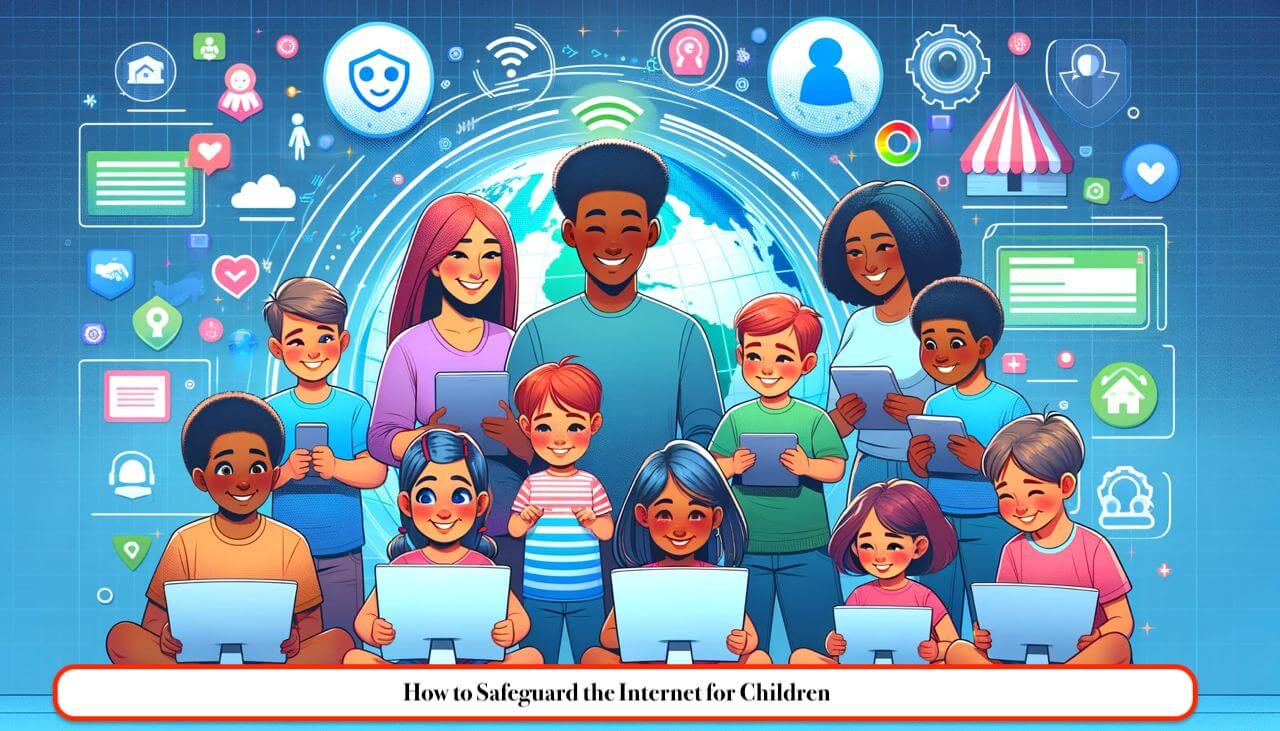
Hello to all the parents of the world; I am Keleis Andre, a network security expert. Like you, I am a parent. I want to talk to you about “How to Safeguard the Internet for Children.” The Internet is a space where the user can access any topic, any picture, and any information they want. This feature, while a gift, can also be a worrying issue. Nowadays, when the age of using the Internet has decreased, and children have phones and tablets from a young age and are familiar with the Internet, the concern of parents is how to secure the Internet for children so that children, while having permission to use the Internet, cannot access any part of it. In this article, we will answer this concern by explaining how to make the Internet safe for children.
Why do children need protection from the Internet?
Many people have heard different things from various sources, virtual influencers, and articles they read in books and magazines about securing the virtual and Internet space. However, they are still not sure why they should monitor their children’s work with the Internet while allowing them curiosity and freedom of action. Statistics from online research in this field show that today, children and adolescents spend more time online than ever before.
This is due to the expansion of access to the Internet and gadgets such as game consoles, smartphones, tablets, and laptops that they have at their disposal. Also, after the coronavirus pandemic, children went out less, and this age group turned more to the Internet and the virtual world for entertainment. This research showed that 93% of children between the ages of 12 and 17 are online, and 75% of these people have their mobile phones. 73% of teenagers have their networks and personal profiles in spaces such as Instagram and publish photos and information about themselves there.
This volume of use of this space for young people, without any supervision, can also have risks.
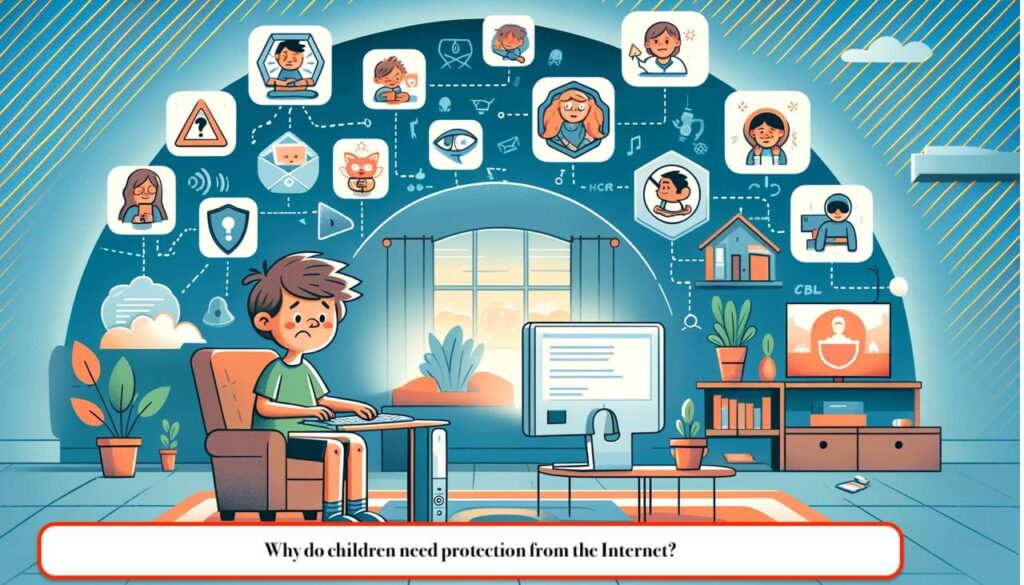
Contact with Inappropriate Individuals:
Children and adolescents who use the internet freely and without supervision are good prey for people like harassers and sexual predators. Cyberbullies can make children especially teenagers feel bad about their appearance and body and become depressed and lose self-confidence. There are always people in cyberspace who abuse the information and photos of children and use them to threaten children.
Inappropriate content:
Since children are essentially curious people, if they use the internet without supervision, they can encounter adult content, and such images or videos can have a lot of adverse effects on them.
Violent, insulting, or torturous images are also abundant on the internet, and many children may accidentally enter such pages and become familiar with this type of content.
Profanity and insults are pervasive in cyberspace, and if children follow any type of page on platforms like Instagram, they are likely to be exposed to inappropriate literature for their age.
Computer security issues:
Malware can make it possible for other people to hack the child’s system and access their information.
Unwanted ads, pop-ups, and ads that appear on the screen after installing an app can display inappropriate content for children and also reduce the security of the computer or mobile.
All these issues make internet safety for children an essential matter so that this age group while using the internet to learn different skills, participate in classes, communicate with their friends and relatives, and also have fun, do not encounter content that is not suitable for their age and does not threaten them.
How to Keep Kids Safe Online
Now that we are familiar with the dangers of cyberspace and the web, we need to see how we can provide a suitable space for children of different ages so that they can use this space when they need it without feeling restricted.
Contrary to the belief of many people, to make the internet safe for children and adolescents, there is no need to put pressure on them or create strict rules for them. Fortunately, there are software that allow you to virtually monitor their internet activities, limit their access to some sections, and prevent them from downloading malware or inappropriate content.
Have a free talk with your child:
Depending on the age of the child, inform him of the problems that may arise for him. Be careful not to hurt your work and scare the child. You can get help from a professional counselor and do some research on reputable sites to make it clear what he should do and manage his web access.
Take management and supervision seriously:
Parental Control App: These types of apps allow you to monitor and are equipped with sufficient security. Thanks to these apps, you can indirectly track and check your child’s online time. We can refer to SPY24, Bark, and Qustodio as examples of these apps and applications.
Antivirus software: This software helps you keep your child safe from malware that may unknowingly come to them.
Respecting your child’s privacy
Your supervision of the internet should not damage your parent-child relationship and make them feel restricted. Therefore, it is essential that your child feels that you trust him and that he has some freedom of action.
Your job may be a bit difficult; because you have to both close the access of the child to some parts of the internet and not destroy his sense of independence.
To avoid failing this test, you need to trust online management methods. Also, increase your knowledge of cyberspace and the web and stay up to date in these areas. For children who are born in the world of tablets and smartphones and have been dealing with these devices from a young age, your knowledge in these areas must be also high so that you can protect your child.
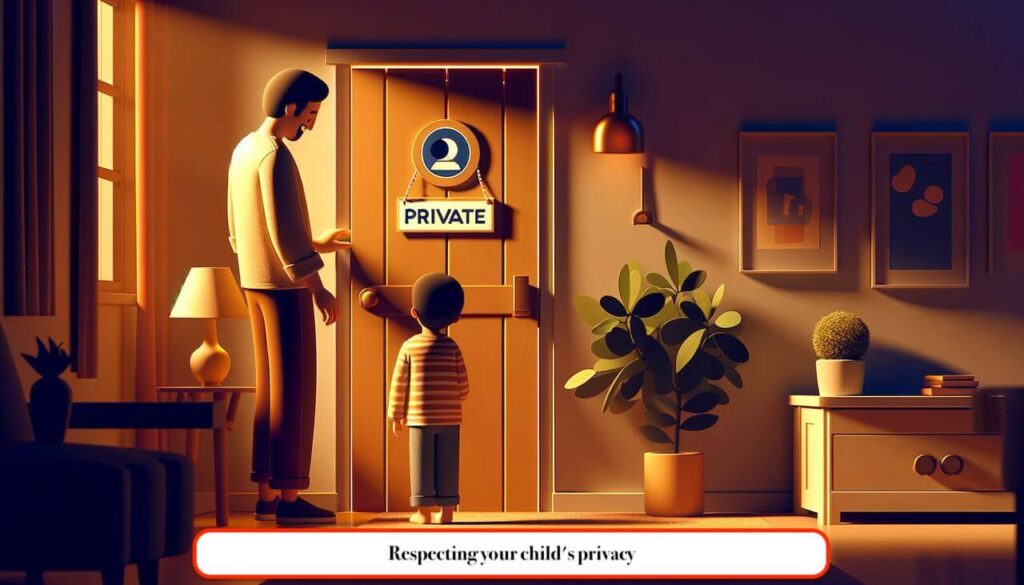
Getting to know your child’s friends
Children should have freedom, but they should know that you are their safe space and this is for their greater safety. In this section, you should behave in such a way that children do not think you want to monitor them or limit them. This situation is probably more challenging with teenagers than with children; because they are more conservative. Ask your child who his friends are. If he goes to different classes besides school and is also active in cyberspace, ask him to give you his friends’ numbers. Also, it is good to have the number of the father or mother of his friends. This will help you to be comfortable.
What is Parental Control Software?
Parental Control refers to a set of settings that allow you to control the content that your child is going to see. There are many tools and software that would enable parents to limit the sites, images, and other content that their children see on the internet.
These items can help you protect your children from inappropriate content, cyberbullying, and other online safety issues.
Parental control apps are applications that allow you to control the content that your children can see. You can install most of these apps on your laptop, phone, and computer.
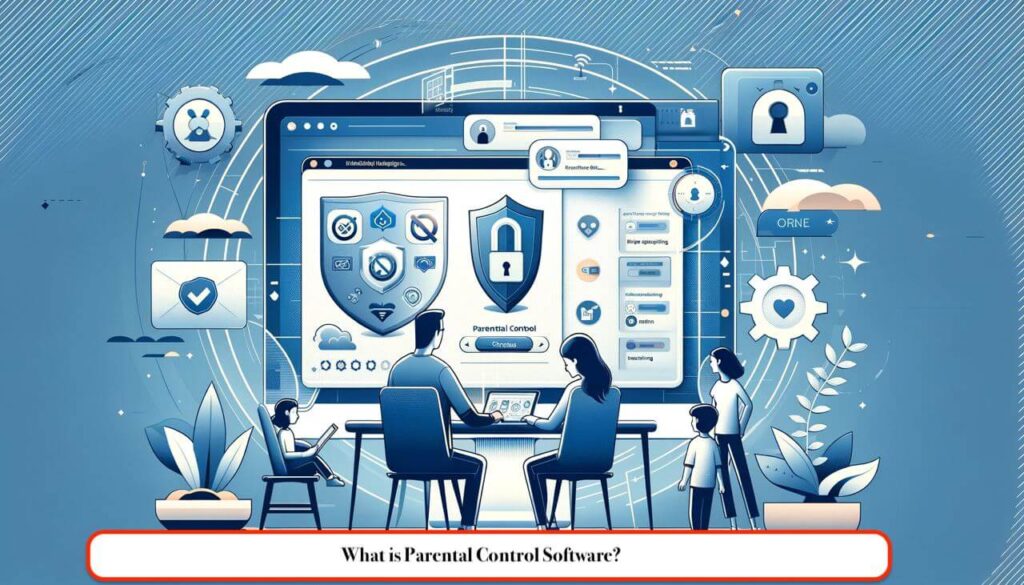
SPY24 App
Parental Control Features:
- Social apps’ screen recording
- Record calls and phone surroundings
- Monitor 12 different social apps
- Watch list locations, people, and words
- Monitor phone calls, emails, & multimedia
This app is available in two free and paid versions. Using the free version, you can limit your children’s access to malicious sites and set a time for their browsing in cyberspace. Using the paid version of the app, in addition to the features mentioned, you can access messages, social networks, and other apps. This app is available for both Android and iOS and Windows and Mac platforms.

KuuKla Parental Control app
- Ability to hide apps No access to unauthorized apps
Using this app that is installed on the phone, you can easily limit your child’s access to some specific apps with parental control settings. With this, your child will only see the apps that he is allowed to use; also, using this app, you can limit the time that your child can use the phone.
Information Your Child or Teenager Should Know About the Internet
On one side of this issue, there are you, the parents; on the other side, there are the children who need to be vigilant to avoid problems and protect themselves. The responsibility of teaching these matters falls on the parents because you can’t manage them every minute of the day, but their phones and tablets are always in their hands. Of course, you will face challenges along the way.
So, how can we make the internet safe for children? What are the essential lessons?
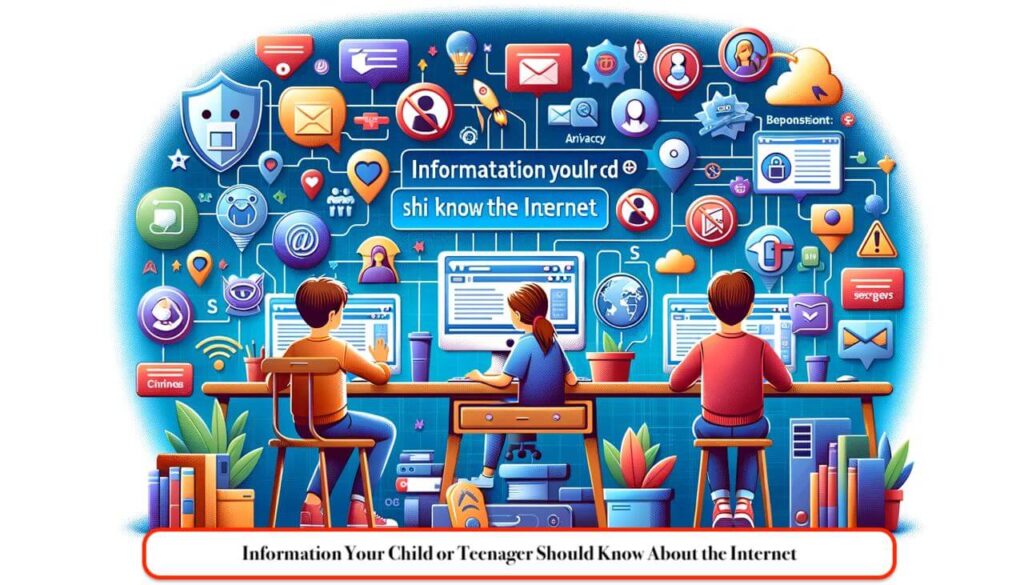
- No Talking to Strangers!
This is the first thing that all parents teach their children, and by knowing it, we can keep many potential dangers away from children. The importance of this issue is no less in the virtual world than in the real world.
Children these days are constantly playing online games and interacting with people from other age groups during the game. Because of the friendships that might be established between children and these virtual individuals, there’s a high chance that children might share personal information, such as their social media accounts or phone numbers. This allows strangers to access a lot of information about children, including their photos and the places they go. These individuals might introduce themselves as someone the same age as your child and gain their trust, or they might even enter children’s pages with fake and unreal accounts and harm them by posting threatening or upsetting comments.
Children and teenagers need to understand that people are not always as they present themselves on the internet. Even if their voice, their picture, or the things they say seem trustworthy, we must always be cautious and take preventive measures to avoid problems.
Consider the following example:
- You look so sad in the new picture you posted. Are you okay? I’m worried about you.
– Yes.
- You didn’t look okay. If you want to talk, you can count on me :)
– Nothing happened. I just had a little argument with my mom.
- About what?
– It’s not very important. I wanted to do something, but it didn’t allow me.
- Moms can be so annoying. You’re such a good girl! Why should your mom bother you? I understand you must be in a challenging situation right now 🙁
– Thanks for understanding me 🌹 Sometimes I feel like no one at home understands me. Some days, I don’t even want to come home from school.
- If you want, we can go out together sometime. You can count on me to talk. 😉
Such conversations might occur for many teenagers. The example you observed is a case of a conversation that can confuse children and lead them to trust a stranger. Perhaps it would be better to be more cautious when talking to your children. A friendly relationship and creating a warm atmosphere at home will prevent children from distancing themselves from the family, and even if they encounter a problem, they will talk to trustworthy people they know.
You can explain the issue to your child in full by talking to them or getting help from adults you know and your child trusts. Awareness reduces the likelihood of your child being in danger. Also, you should tell them to refrain from giving their information to strangers, including their place of residence, phone number, and other private information, and to share any suspicious incidents with you, especially if someone threatens them.
- Block and Report All Cyberbullies
On Instagram, Twitter, games, and even messaging apps, we sometimes encounter someone who sends us a mocking or belittling message. This issue can upset even adults, let alone children and teenagers who are in sensitive stages of their lives.
Dealing with these cyberbullies can be tough. In many games, children might be told that they are not good enough or that they can’t handle the game. On their social pages, people might come in and attribute qualities to them, such as ugly, bad-bodied, worthless, or lazy. Even beyond that, someone might send a picture of their body to your child!
We draw your attention to the following examples:
“Don’t you want to get a nose job? 😂”
“You’re not pretty, at least study well so your parents can be proud of something.”
“Your gameplay is so bad! There’s nothing easier than playing games in the world, but you’re bad at it 🤦♂️ Worthless.”
You should teach your child that if they encounter such messages, they must block and report the person without any argument. If they don’t know how to block people, you should teach them. They should know that they are much more valuable than the messages they receive from sick people.
- Dangerous Links, Files, and Websites!
Cyber harassers know that children are looking for free games and music downloads. They also know that children are more likely to be fooled by links and emails.
If your child clicks on one of these links, a virus might be downloaded that not only disrupts the system but also shows inappropriate images or content to the child.
Teach them that each of these issues can cause problems for them, and if they encounter these files, they should avoid clicking on them.
- Do Not Share Any Video or Picture
All followers can see anything shared on the internet. When your child starts using social networks, they should know from the beginning that maintaining their privacy keeps them safe. Their page should be private, and they should be careful when accepting requests from strangers. They should know that these requests from you are not to limit them, but you want to prevent any problems for them.
Tell them to let people into their page cautiously, and it’s better only to accept people they fully know. If they know what problems might arise for them, they will be more cautious and share various contents on their page with more care and precision.
Helpful and Important Tips for Parents:
- Maintain a good relationship with your child so that if they encounter any problems, they will share them with you. Many children, due to the inappropriate atmosphere at home, turn to kind virtual strangers and consider them as their confidants. They should know that you are a safe person to talk to and that you will care for them no matter what.
- Place the computer in a public room, such as the living room or somewhere where other people are always present.
- Ask your child to inform you if anyone threatens them, even dangerous threats.
- Use online monitoring Software.
- If your child is using your phone or tablet, it’s good to set rules for their use and limit many apps when the child is using them.
- Stay up-to-date. Know the spaces where children and teenagers visit, such as social networks and chat rooms, and get help from other people who use them. If you are aware, you will have less stress and will be able to help your child better.
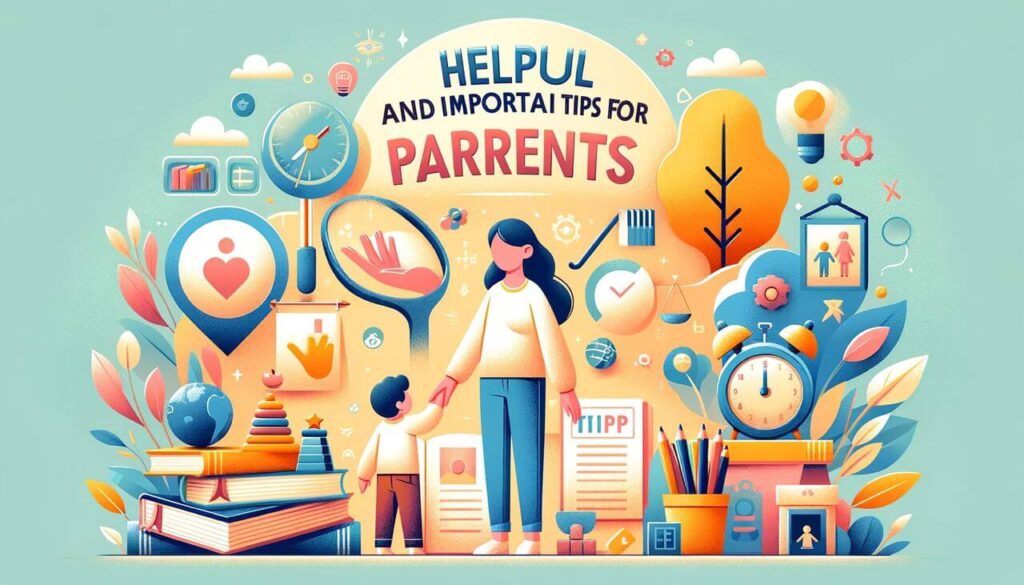
Conclusion:
The virtual space and the internet are very beneficial spaces that play a very prominent role in informing us and giving us access to an unlimited source of information. However, for those who cannot defend themselves and are underage, this unlimited access can have the opposite effect and expose them to things they should not see.
By educating yourself and your child, you can turn the internet into a safe space for them where they can make necessary uses and at the same time not be harmed. Keep in mind that your role as an elder is very prominent, and securing the internet for children is one of your most essential duties towards your children.
FAQs:
How is the internet made safe for children?
The use of monitoring applications, limiting children’s access to age-inappropriate sections, and most importantly, establishing a good relationship with them so that they share everything about this space with you.
What does online safety mean for children?
Not responding to emails and messages from strangers, not posting any pictures online, not opening any links or files, and not accepting meeting requests from virtual strangers is what every minor should know about online safety.

